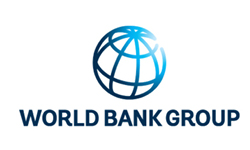Publications
Filter by
394 results found

This PPP checklist is an extension of the initial framework.



The Framework provides systematic structure for proactively disclosing information pertaining to PPP Projects.



This report addresses the critical question: how can the public and private sectors build successful partnerships?



A G20 report prepared by the Global Infrastructure Hub reviewing the extent to which Multilateral Development Banks (MDBs) create incentives within their organisations to crowd-in private finance to fund public infrastructure.


This book discusses in detail the issues and challenges associated with infrastructure connectivity in Asia.

This policy brief outlines promising ideas to attract instiutional investors to pay for infrastructure they have not convinced pension funds or affluent individuals to invest, especially in emerging economies with untested issuers, The “tax-kicker” bond being proposed here could solve this issue.


This document is the fifth edition of an informational tool and benchmarking index that assesses the capacity of countries in Latin America and the Caribbean to carry out sustainable public-private partnerships (PPPs) in infrastructure.


This paper studies the impacts of providing an efficient and affordable transport system within a country through the experience of the Philippines.

The study provides a quantitative analysis of the potential gains that would stem from improving efficiency in infrastructure spending in Latin America and the Caribbean.

This is a study in 22 low- and middle-income countries in Asia revealing a strong positive relationship between social protection spending and health outcomes.

This document outlines the strategy for Central Asia it envisions rail transport to become a mode of choice for trade: quick, efficient, accessible, and easy to use throughout Central Asia.

This is a new framework for road safety aims to halve the number of fatalities on CAREC road corridors by 2030 (compared to 2010).

This note discusses competition and consumer choice in the healthcare sector.

Through maps, charts and images, the Atlas combines scientifically reliable data sources to provide a complete view of Africa’s energy needs, resources and opportunities.

This publication looks at how lowering trade barriers on health products can improve health systems.

The European Investment Bank adopted the EIB Group Gender Strategy on 13th December 2016, building upon an extensive review of and alignment with relevant EU legislation and policy documentation.

The European Investment Bank adopted the EIB Group Gender Strategy on 13th December 2016, building upon an extensive review of and alignment with relevant EU legislation and policy documentation.

The paper discusses the state and the way forward for Africa's infrastructure, with a strong focus on quality infrastructure.

ICA’s flagship report, Infrastructure Financing Trends in Africa, shows trends of financing flows to infrastructure projects in Africa based on collected data from various stakeholders.

The objective of this review is to analyze the current status on achievement of targeted benefits from distribution privatization and identify the gaps between expectations and realizations, with a key task of proposing concrete procedures and methodologies to ensure that EMRA and other government agencies involved in monitoring and enforcing quality in electricity distribution and retail have timely access to reliable information on service actually provided by the DISCOMs to their customers.



